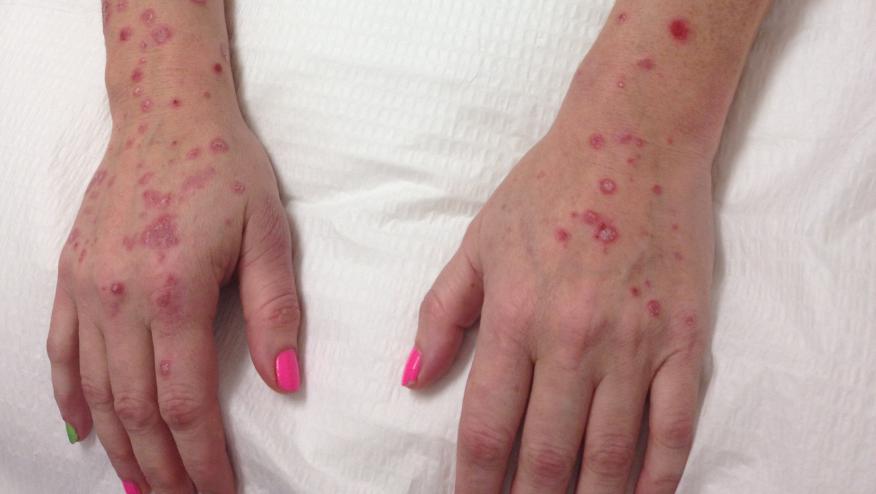Abatacept After Ustekinumab Withdrawal in Active Plaque Psoriasis Save

A randomized controlled trial has shown that treatment of plaque psoriasis via costimulatory blockade ( CD28/B7) with abatacept did not prevent psoriasis relapse after withdrawal of ustekinumab.
The purpose of this trial was to determine if abatacept (costimulatory blockade) after ustekinumab withdrawal would prevent clinical or molecular relapse of psoriasis.
The PAUSE trial was a double-blind randomized clinical trial of 91 adults with moderate to severe plaque psoriasis; who first received 12 weeks of open, lead-in therapy with ustekinumab (UST- 45 mg per dose for those ≤100 kg; 90 mg per dose for those >100 kg); responders were randomized to continued UST or costimulatory blockade with abatacept (ABA - subcutaneous abatacept, 125 mg weekly, from weeks 12 to 39). All treatment was discontinued at week 39, and psoriasis relapses were assessed until week 88 (psoriasis relapse defined as a loss of ≥50% of the initial PASI between weeks 12 and 88).
A total of 108 PSO patients (mean age, 46.1 years; w/3 men) were given open-label UST for 12 weeks; 91 were randomized to blinded treatment.
Psoriasis relapse rates (weeks 12 to 88) were similar between the ABA and UST continued (91% vs 87%; P = 0.41). The median time to relapse was also similar between groups (ABA 36 weeks vs UST 32 weeks).
But there were differences; 6 months after randomization, A higher proportion of participants in the abatacept group relapsed between weeks 12 and 40 compared with participants in the ustekinumab group (25 of 45 [55.6%] vs 14 of 46 [30.4%]; P = .01).
Also, subsequent molecular signatures were different as ABA did not maintain suppression of the pathogenic IL-23-mediated psoriasis molecular signature in skin lesions after ustekinumab withdrawal, and serum IL-19 levels increased.
Abatacept could not prevent psoriasis relapse after ustekinumab withdrawal. Return of the pathogenic psoriasis molecular signature suggest that clinical relapse may involve compensatory T-cell activation pathways in the presence of CD28-CD80/CD86 blockade.










If you are a health practitioner, you may Login/Register to comment.
Due to the nature of these comment forums, only health practitioners are allowed to comment at this time.